Coronavirus Has Reached the US. Here's how to protect yourself
What started as a mystery virus last month in Wuhan, China, has now killed more than two dozen people and infected hundreds more around the world.
In the US, the first cases of Wuhan coronavirus were confirmed this week -- a man in his 30s who is under observation in Washington state and a Chicago woman in her 60s -- stoking fears of an outbreak in this country.
So what are officials doing in the US, and how can you minimize your risk?
What airports are doing
Passengers from Wuhan to the United States -- either on direct or indirect flights -- will soon only be allowed to land at one of five US airports screening for the virus.
CDC workers at those US airports -- John F. Kennedy International Airport in New York, Los Angeles International Airport, San Francisco International Airport, Hartsfield-Jackson Atlanta International Airport and Chicago O'Hare International Airport -- have already screened more than 2,000 travelers for symptoms such as fever, cough and trouble breathing.
Officials at Seattle-Tacoma International Airport put up signs at the international arrivals area instructing travelers from Wuhan to watch for symptoms of the virus. The Centers for Disease Control and Prevention started displaying the sign in English and Chinese on January 14, an airport spokesman said.
But these airport screenings might not catch everyone infected. That's because the incubation period can last a week -- meaning it can take a week after getting infected before showing any symptoms.
What the CDC is doing
The CDC raised its travel warning for Wuhan from level 2 to level 3 -- the highest possible level.
"CDC recommends that travelers avoid all nonessential travel to Wuhan, China," the agency said Thursday.
The announcement came after Chinese officials scheduled a public transportation lockdown for the city's buses, ferries and subways. Airport and rail stations have been temporarily closed for departing passengers, Wuhan authorities said.
For those who traveled to China in the past two weeks and have symptoms such as fever, cough or trouble breathing, the agency recommends seeking immediate care, avoiding contact with others, not traveling and practicing good hygiene.
"At this time, it's unclear how easily or sustainably this virus is spreading between people," the CDC said.
What scientists are doing
Across the US, scientists are trying to create a vaccine for the new virus. But don't expect it anytime soon.
The National Institutes of Health is working on one, but it will take at least a few months before clinical trials start and more than a year until a vaccine might actually become available.
Separately, scientists in Texas, New York and China are also trying to create on a vaccine, said Dr. Peter Hotez, a vaccine scientist at Baylor College of Medicine in Houston.
But the challenge is daunting.
"The lesson we've learned is coronavirus infections are serious and one of the newest and biggest global health threats," Hotez said.
What you can do yourself
Avoid close contact with anyone showing symptoms of respiratory illness, such as coughing and sneezing, the World Health Organization says.
Other symptoms of this coronavirus include fever and shortness of breath. Severe cases can lead to pneumonia, kidney failure and even death.
Scientists believe this coronavirus started in another animal and then spread to humans. So health officials recommend cooking meat and eggs thoroughly.
Anyone with underlying medical conditions should avoid live animal markets and raw meats altogether, since those people are "considered at higher risk of severe disease," the World Health Organization says.
But, in general, the public should do "what you do every cold and flu season," said Dr. John Wiesman, the health secretary in Washington state -- where the first US case of Wuhan coronavirus was confirmed.
That includes washing your hands often with soap and water for at least 20 seconds.
If you're the one feeling sick, cover your mouth and nose when you cough or sneeze, and disinfect the objects and surfaces you touch.
If you or your doctor suspect you might have the Wuhan coronavirus, the CDC advises wearing a surgical mask.
What to do if you're planning to go to China
This virus is spreading at the worst possible time of the year -- when millions of people are traveling to or within China for Lunar New Year celebrations.
Chinese New Year starts Saturday, but festivities can last for two weeks and often include family rituals that are supposed to ensure a successful year.
While the CDC's travel warning for Wuhan is a Level 3, the travel alert level for the rest of China is at Level 1-- which means "practice usual precautions."
But Americans visiting friends and family in China might be at greater risk than tourists.
"Their risk is higher because they generally stay longer than tourists, eat local food in people's homes, and may not take the same precautions that tourists do," the CDC said.
Before traveling, the CDC recommends visiting a health care provider to make sure you have all necessary vaccinations and travel medication.
Americans should also monitor for warnings and alerts from the US State Department and register trips with the US Embassy or consulate.






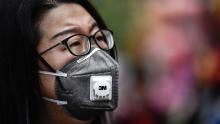
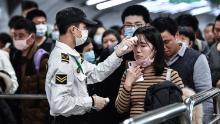

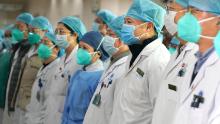
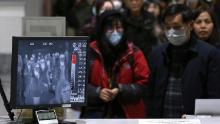

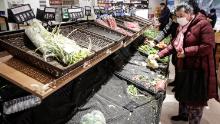
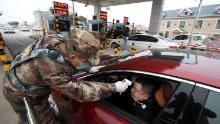
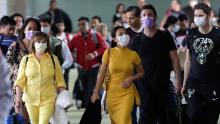
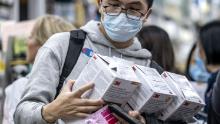
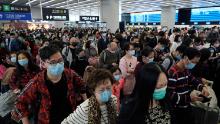

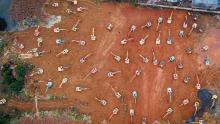

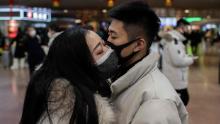

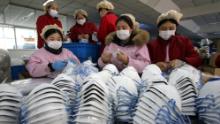


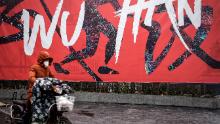
























0 Response to "Coronavirus Has Reached the US. Here's how to protect yourself"
Post a Comment